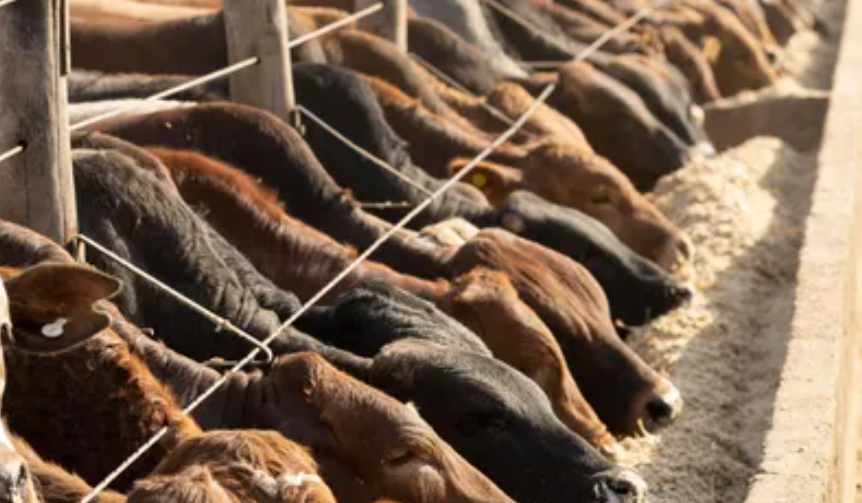The growing U.S. population has created a high demand for food. To meet this need, farmers use chemicals, hormones, and other methods to increase the amount of food they produce. But this can make the food we eat more dangerous.
The safety of food, especially meat, poultry, fish, and dairy, is a big concern in the U.S. due to weak regulations. Here are some of the dangers in our food and why stronger rules are needed to protect people.
Meat and Poultry
The meat and poultry industries are a huge part of the U.S. food supply. But there are problems with safety, such as:
- Antibiotics: Farmers use too many antibiotics, which can lead to bacteria that resist antibiotics, making them harder to treat.
- Contamination: Harmful bacteria like Salmonella and E. coli can contaminate meat, causing serious illness.
- Hormones and Additives: Growth hormones and additives in meat may cause health problems.
Beef
U.S. beef often contains antibiotics and hormones, unlike European beef, which is free of drugs. The antibiotics used in beef can create bacteria that are harder to kill, and hormones may increase the risk of health problems like cancer.
Dairy Products
Dairy is a common part of many diets, but there are risks:
- Hormones: Hormones like rBST used in dairy cows can increase cancer risks.
- Antibiotics: Similar to meat, the overuse of antibiotics in dairy cows can lead to antibiotic-resistant bacteria.
- Contamination: Bacteria like Listeria in dairy can cause serious illness.
Milk
American milk often contains growth hormones, while milk from Europe, Australia, and New Zealand does not. The legal limits for harmful chemicals like dioxins are much higher in the U.S. than in other countries, making American milk more dangerous to consume.
Cheese
American cheese contains artificial dyes, unlike cheese from places like Scandinavia. These dyes can cause allergic reactions and may even be linked to cancer.
Pork
Pork, known as “the other white meat,” also comes with dangers:
- Antibiotics: Like other livestock, antibiotics used in pork can lead to drug-resistant bacteria.
- Parasites: Pork can carry parasites like Trichinella spiralis, which can cause serious illness.
- Hormones: Hormones used in pork production can also have negative health effects.
Other Livestock Foods
Other foods from livestock, like eggs and processed meats, also have risks:
- Processed Meats: Eating processed meats is linked to higher risks of cancer and other long-term illnesses.
Poultry
Poultry faces weak regulations, leading to health risks such as:
- Antibiotics: The overuse of antibiotics in chickens can create drug-resistant bacteria.
- Salmonella in Eggs: Salmonella is a common problem in eggs and can cause serious illness.
Fish and Seafood
Fish and seafood may seem like healthy options, but there are hidden dangers:
- Mercury: Some fish, especially larger species, can contain high levels of mercury, which is harmful.
- Microplastics: Small pieces of plastic have been found in seafood, which may have long-term health impacts.
Parasites in Food
Parasites are also a big concern in food due to poor food handling. These parasites can infect our bodies and cause serious health problems. Some common ones include:
- Beef: Beef can carry tapeworms and Toxoplasma gondii, which are harmful to pregnant women and people with weak immune systems.
- Pork: Pork can carry Trichinella spiralis and pork tapeworms, leading to muscle pain and even brain problems.
- Dairy Products: Dairy can have parasites like Cryptosporidium and Giardia, which cause stomach problems.
- Poultry: Poultry can carry parasites like roundworms, which can lead to malnutrition.
- Fish and Seafood: Fish can carry parasites like Anisakis and fish tapeworms, which can cause stomach pain and anemia.
To protect yourself from these parasites, always cook your food thoroughly and buy from trusted sources.
The risks in our meat, poultry, fish, and dairy products show the need for stronger food safety regulations. Protecting our health means making sure the food we eat is safe and free from harmful chemicals and parasites.
Recommendations
- Stronger Regulations: The government should enforce stricter rules on antibiotics, hormones, and additives.
- Better Testing: Food should be tested more often for harmful bacteria and chemicals.
- Public Awareness: People need to know about the risks in their food and be encouraged to choose safer alternatives.
By addressing these problems, we can work toward a safer food supply in the U.S.
